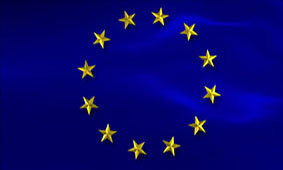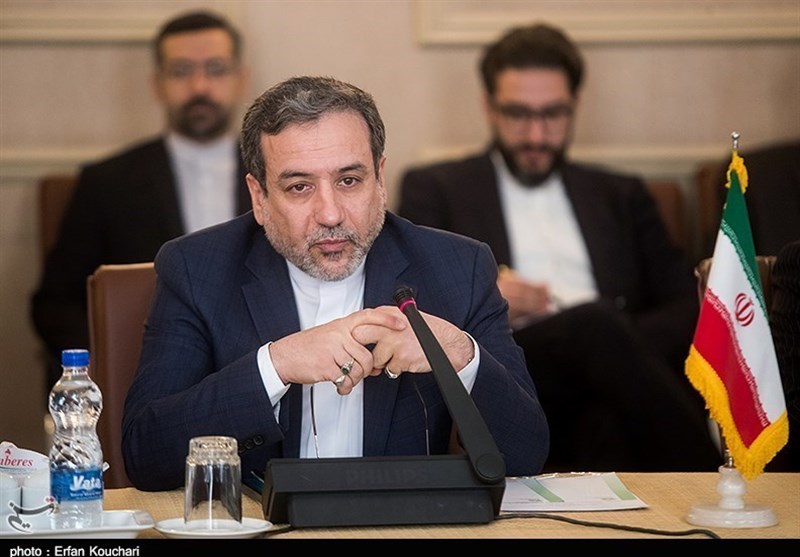
Europe’s Measures to Save JCPOA Not Meeting Iran’s Expectations: Deputy FM

Speaking to reporters after the Friday meeting of the JCPOA’s joint commission in Vienna, Iran’s Deputy Foreign Minister for Political Affairs Abbas Araqchi said plans to put the INSTEX (Instrument in Support of Trade Exchanges) into operation have made some progress, but the Europeans fall way short of Iran’s expectations.
The Iranian diplomat added that there is still a long way to the fulfillment of Iran’s demands, although the 3-hour-long meeting was seen as a step forward in comparison to the previous sessions.
“INSTEX has finally become operational, as two or three working cases are currently in progress and financial transactions are going to take place within coming days,” he said.
He added that the European countries have plans to allocate credits to INSTEX and have promised that the other countries will also be able to use the mechanism for trade with Iran very soon.
“INSTEX has reached the operational stage, but falls short of our expectations. INSTEX will not be able to fulfill our expectations without Iran’s oil being purchased or without certain credits being considered for it. So the European countries must seriously put the issue of Iran’s oil export on the agenda,” Araqchi added.
The Iranian diplomat went on to say that talks about Iran’s Arak heavy water reactor also made good progress at the JCPOA joint commission meeting, saying all of the parties have been committed to a timetable for finishing the project.
The remaining parties to the JCPOA have agreed to hold a ministerial meeting in the near future, whose date and venue will be announced later, Araqchi added.
The Friday meeting in Vienna was co-chaired by Araqchi and Secretary General of the European External Action Service (EEAS) Helga Schmid.
Negotiators from Iran and the Group 4+1 (Russia, China, Britain, France and Germany) convened in the Austrian capital to discuss ways to save the JCPOA following the US moves against the deal.
On May 8, 2018, US President Donald Trump pulled his country out of the JCPOA, a 159-page nuclear agreement between Iran and the Group 5+1 (Russia, China, the US, Britain, France and Germany) came into force in January 2016.
Following the US withdrawal, Iran and the remaining parties launched talks to save the accord.
However, the EU’s failure to ensure Iran’s economic interests forced Tehran to stop honoring certain commitments under JCPOA on May 8, 2019.
Iran has also set a 60-day deadline for the remaining JCPOA parties to fulfill their undertakings.



Trump weighs using $2 billion in CHIPS Act funding for critical minerals

Codelco cuts 2025 copper forecast after El Teniente mine collapse

Electra converts debt, launches $30M raise to jumpstart stalled cobalt refinery

Barrick’s Reko Diq in line for $410M ADB backing

Abcourt readies Sleeping Giant mill to pour first gold since 2014

Nevada army depot to serve as base for first US strategic minerals stockpile

SQM boosts lithium supply plans as prices flick higher

Viridis unveils 200Mt initial reserve for Brazil rare earth project

Tailings could meet much of US critical mineral demand – study

Kyrgyzstan kicks off underground gold mining at Kumtor

Kyrgyzstan kicks off underground gold mining at Kumtor

KoBold Metals granted lithium exploration rights in Congo

Freeport Indonesia to wrap up Gresik plant repairs by early September

Energy Fuels soars on Vulcan Elements partnership

Northern Dynasty sticks to proposal in battle to lift Pebble mine veto

Giustra-backed mining firm teams up with informal miners in Colombia

Critical Metals signs agreement to supply rare earth to US government-funded facility

China extends rare earth controls to imported material

Galan Lithium proceeds with $13M financing for Argentina project

Kyrgyzstan kicks off underground gold mining at Kumtor

Freeport Indonesia to wrap up Gresik plant repairs by early September

Energy Fuels soars on Vulcan Elements partnership

Northern Dynasty sticks to proposal in battle to lift Pebble mine veto

Giustra-backed mining firm teams up with informal miners in Colombia

Critical Metals signs agreement to supply rare earth to US government-funded facility

China extends rare earth controls to imported material

Galan Lithium proceeds with $13M financing for Argentina project

Silver price touches $39 as market weighs rate cut outlook

















